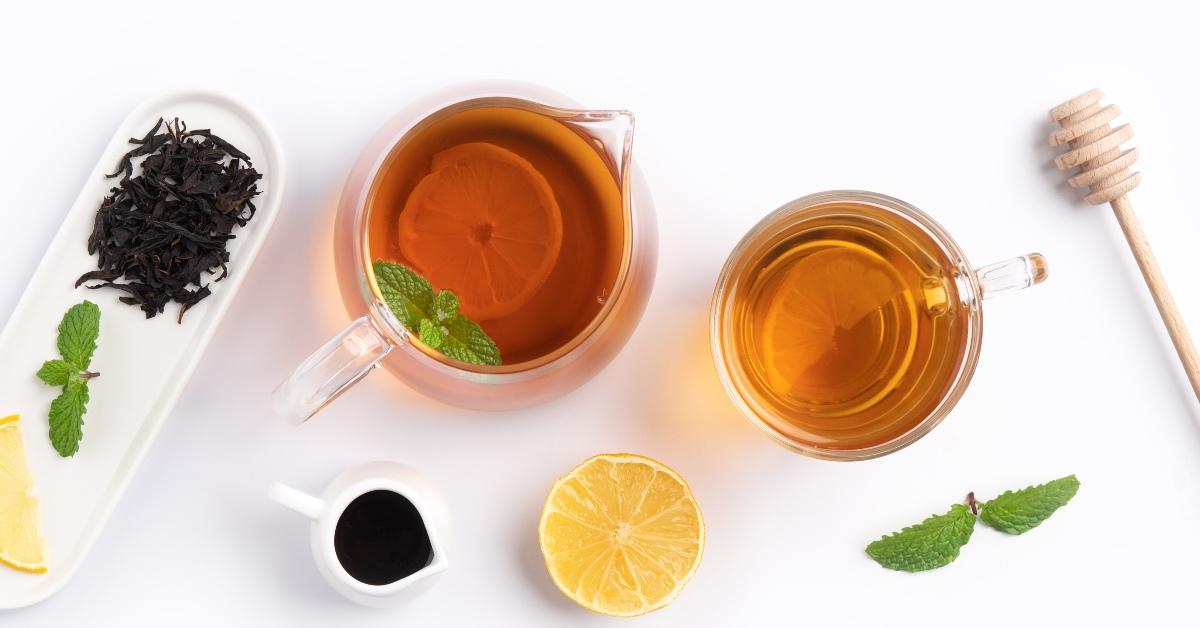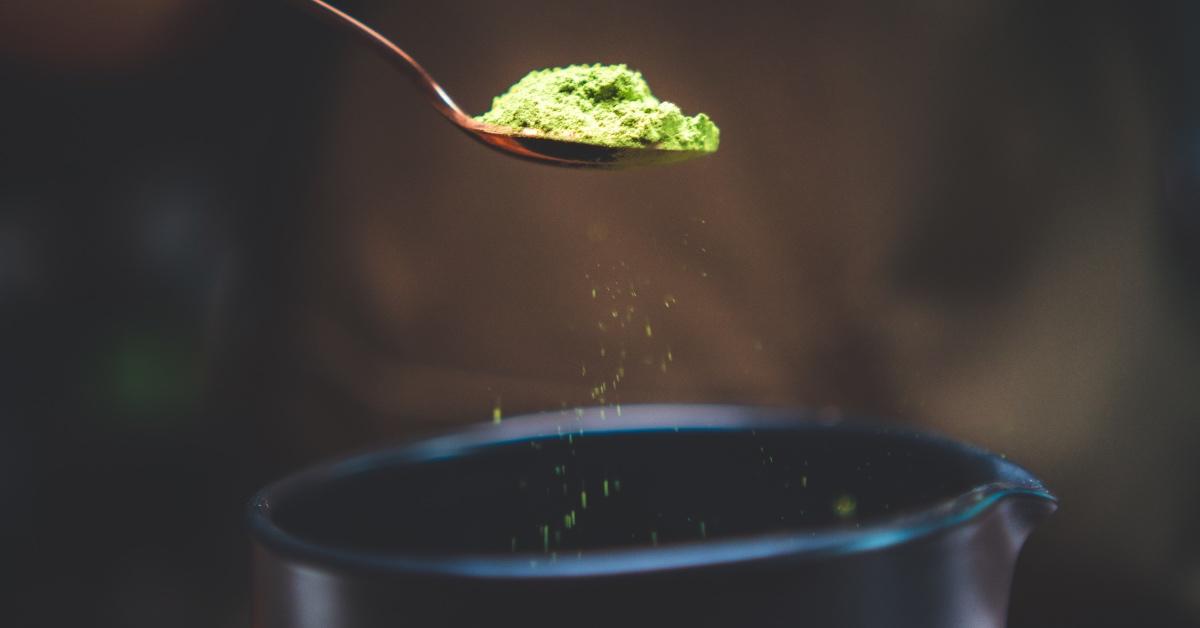Which Is Better: Green or Black Tea? Inside the Long-Standing Tea Debate
Published July 10 2023, 12:26 p.m. ET

Regarding beverages famed for health and wellness, look no further than tea. Whether it's black tea or green tea, humans have been drinking the beverage, which started as a medicinal remedy, since the third century, according to Smithsonian Magazine. Despite the market for it, there are some downsides to tea. Tea can also carry microplastics, and the tea industry frequently has a negative environmental impact.
When choosing one type of tea to drink, it's best to know the pros and cons of each. What are the benefits of green tea vs. black tea? Are there any pitfalls to either kind of tea? How do they match up in terms of caffeine amount? Keep reading for everything you need to know.

Green tea vs. black tea: what's the difference?
If you didn't already know, technically, black tea and green tea come from the same plant called Camellia sinensis. Besides the taste, the only major difference between the two is how the leaves are processed and oxidized.
According to Red Rose Tea, the leaves of green tea are heated to halt oxidation and keep that nice green color. Black tea, on the other hand, is fully oxidized, thus, why the leaves are black or brown, and the taste is richer and stronger.
Additionally, Red Rose Tea notes that black tea oxidation involves hand-rolling or a machine rolling the leaves to create "little breaks that allow enzymes to interact with oxygen." The leaves then turn black during the firing process.
Green tea leaves are steamed or pan-fired after harvesting to retain their color and taste more "grassy."

How much caffeine is in green tea vs. black tea?
According to Healthline, green tea has less caffeine than black tea. Green tea only has about 35 mg per 8-ounce (230-ml) cup, compared with 39–109 mg for the same serving of black tea.
The health benefits of black tea and green tea are very similar.
While both kinds of tea are widely considered "health beverages," they share similar attributes. Both teas are rich in antioxidants called flavonoids, although they each have slightly different kinds of flavonoids, says Healthline. The antioxidant flavonoids in green and black tea are good for your heart.
One collection of studies from 2015 suggested that people who drink 1-3 cups of green tea per day have 19 and 36 percent less risk of heart attack and stroke than those who drink less than 1 cup of green tea per day.
Similarly, another study from 2007 suggested 3 cups of black tea daily could reduce your risk of heart disease by an estimated 11 percent.

Green tea contains the antioxidant epigallocatechin-3-gallate (EGCG), which Healthline says is linked to many positive health benefits. These benefits include potentially causing cancer cell death, reducing the effects of Alzheimer's disease, reducing the development of a fatty liver, and potentially even creating a calming effect.
Meanwhile, black tea contains a group of antioxidants called Theaflavins, which may protect your heart and blood vessels and reduce cholesterol and blood sugar levels.
So, ultimately, both teas carry significant health benefits — just be sure the teas you indulge in are created using sustainable practices!